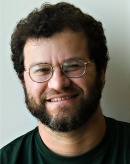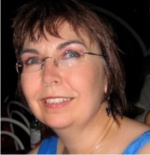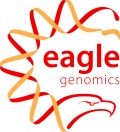| Please visit our ***NEW*** OBF/BOSC website: https://www.open-bio.org/ |
-
BOSC 2012
The 13th Annual Bioinformatics Open Source Conference (BOSC 2012) was held July 13-14, 2012, in Long Beach, CA, right before ISMB 2012.
The conference schedule is available here as HTML (with links to the slide presentations) and here as a PDF file. You can also download the complete program, which includes the schedule and all of the talk and poster abstracts.
Important Dates
- July 11-12, 2012: Codefest 2012 (Loyola Marymount University, Los Angeles, California)
- July 13-14, 2012: BOSC 2012 (Long Beach, California)--schedule
- July 15-17, 2012: ISMB 2012 (Long Beach, California)
- July 19-20, 2012: EU-codefest 2012 (Lodi, Italy)
- July 19-20, 2013: BOSC 2013 (Berlin, Germany)
Overview
The Bioinformatics Open Source Conference (BOSC) is a satellite of ISMB. It is sponsored by the Open Bioinformatics Foundation (OBF), a non-profit group dedicated to promoting the practice and philosophy of Open Source software development within the biological research community.
Open Source software has flourished in the bioinformatics community for well over a decade. When the first BOSC (Bioinformatics Open Source Conference) was held in 2000, there were already a number of popular open source bioinformatics packages, and the number and range of these projects has increased dramatically since then. Many open source bioinformatics packages are widely used by the research community across a wide variety of applications. Open source bioinformatics software has facilitated rapid innovation, dissemination, and wide adoption of new computational methods, reusable software components, and standards.
BOSC brings together bioinformatics open source developers from all over the world so they can forge connections each other (both within and across projects), increase the visibility of their work, and collaborate to build shared resources. Participants can work together to create use cases, prototype working code, or run hands-on tutorials in new software packages and emerging technologies. For those who are bioinformatics software users rather than developers, BOSC introduces or updates them on a wide array of projects that they might find useful.
Please spread the word about BOSC to interested developers; all are welcome. On Twitter, follow @BOSC2012 and use hash tag #bosc2012.
Sessions
The conference schedule is available here as HTML and here as a PDF file.
- Cloud and Parallel Computing -- This session will cover cloud-based approaches to improving software and data accessibility. The emergence of cloud computing has made highly scalable cluster computing available to computational biologists. Services such as Amazon's Elastic Compute Cloud combined with publicly available datasets promise to lower the overhead to participate in large scale data analyses. Talks will focus on how the community can build up resources, datasets, and workflows for making the best use of cloud infrastructure. We will also include talks on data-parallel approaches to analyzing massive data sets, such as those resulting from next-generation sequencing and mass spec proteomics, and reports on the parallelization of bioinformatics algorithms in general.
- Genome-scale Data Management -- This session will focus on processes and technologies that support the creating, managing and reporting of genomic data. This session is appropriate for discussion of systems that involve components such as (but not limited to) Ensembl and GMOD/Chado data stores, Taverna and Galaxy analysis workflows, and BioMart and InterMine warehouses.
- Linked Data and Translational Knowledge Discovery -- Linked Data is an emerging set of conventions on using basic Semantic Web standards (HTTP URIs and RDF in particular) to expose, share, and connect data, information, and knowledge online. This session will explore the application of Linked Data and other knowledge-discovery techniques and paradigms to help advance our understanding of human health and disease.
- Software Interoperability -- Open Source approaches to integrating the latest bioinformatics tools. Examples of interoperability environments include Galaxy, Cytoscape, caBIG, and myGrid.
- Bioinformatics Open Source Project Updates -- This session will feature short talks from ongoing projects describing their recent progress. Abstracts will be solicited from open source projects affiliated with the OBF (see http://www.open-bio.org/wiki/Projects), including the Bio* projects, DAS, BioMOBY, EMBOSS, and GMOD, but any other open-source project will be equally eligible to submit presentations for this session.
- Panel: Bioinformatics Paper Reviews: Open Standards and Standards of Openness -- This panel will cover two interrelated types of openness in bioinformatics paper reviews:
- Shared standards/criteria that all reviewers could use when judging bioinformatics papers.
- The requirement that authors make their software/methods/data available so that reviewers can replicate and evaluate the work described in the paper.
Keynote Speakers
Jonathan Eisen
Dr. Eisen is a professor at the University of California, Davis, where he holds appointments in the Genome Center, the Department of Evolution and Ecology and the Department of Medical Microbiology and Immunology. In addition, he has an adjunct position at the Department of Energy Joint Genome Institute in Walnut Creek, CA. Prior to moving to UC Davis he was on the faculty at The Institute for Genomic Research (TIGR) for eight years. His research focuses on the genomic basis for the origin of novelty (how new processes and functions originate), in particular in microbes. Dr. Eisen is heavily involved in the Open Access publishing movement and is Academic Editor in Chief of PLoS Biology. He is also an active and award-winning blogger and microblogger (e.g., see phylogenomics.blogspot.com and twitter.com/phylogenomics). In 2011, Eisen was awarded the Benjamin Franklin Award (Bioinformatics) for promoting open access in the life sciences.
His talk is entitled Science Wants to Be Open - If Only We Could Get Out of Its Way:
Scientific research and education is inherently an open activity. Yet the culture of scientific practice has inserted barriers in the way of this openness in every conceivable area from peer review, to publishing, to sharing resources, to education. I will argue that most or even all of these barriers are unnecessary and should be eliminated for scientific progress to be most efficient.
Carole Goble
Carole Goble is a full professor in the School of Computer Science at the University of Manchester, UK, where she co-leads the Information Management Group. She has an international reputation in Semantic Web, Distributed computing, and Social Computing for scientific collaboration. She is the Director of the myGrid project, which has produced the widely-used Taverna open source software; myExperiment, a social web site that enables researchers to share scientific workflows; and the Biocatalogue of web services for the life sciences.
In 2008 Carole was awarded the inaugural Microsoft Jim Gray award for outstanding contributions to e-Science. In 2010 she was elected a Fellow of the Royal Academy of Engineering for her contributions to e-Science. In 2012 she was nominated for the Benjamin Franklin award for open science in Biology.
Carole's talk is entitled If I build it will they come?:
Over the years I have built a bunch of open source software and services for researchers: the Taverna workflow system, myExperiment for workflow sharing, BioCatalogue for services, SEEK for Systems Biology data and models, and most recently MethodBox for longitudinal data sets. As well as building software we built communities: development communities and user communities. So what drives/hinders adoption? What do I know now that I wished I had known before? How do we sustain communities on time-limited grants? How do we build it so they come, stay and join in?
Open Source License Requirement
The Open Bioinformatics Foundation, which sponsors BOSC, is dedicated to promoting the practice and philosophy of Open Source Software Development within the biological research community. For this reason, if a submitted talk proposal concerns a specific software system for use by the research community, then that software must be licensed with a recognized Open Source License, and be available for download, including source code, by a tar/zip file accessed through ftp/http or through a widely used version control system like cvs/subversion/git/bazaar/Mercurial.
See the following websites for further information:
Sponsors
We thank Eagle Genomics, Ltd. for sponsoring three Student Travel Awards at BOSC 2012. Each student winner will get free admission to BOSC.
BOSC Organizing Committee
Chair
- Nomi L. Harris (Lawrence Berkeley National Laboratory)
Members
- Jan Aerts (Katholieke Universiteit Leuven)
- Brad Chapman (Biopython developer; Harvard School of Public Health)
- Peter Cock (Biopython developer; James Hutton Institute, formerly Scottish Crop Research Institute)
- Christopher Fields (National Center for Supercomputing Applications)
- Hilmar Lapp (National Evolutionary Synthesis Center)
- Peter Rice (European Bioinformatics Institute)
Ex Officio (Members of the OBF Board)
Previous BOSCs
- The first BOSC was held in 2000.
- BOSC 2011 took place in Vienna in July 2011.
- Information about the first 12 conferences
Contact Us
- Follow BOSC on Twitter: @BOSC2012, #bosc2012
- If you'd like to join the mailing list for BOSC-related announcements, including the call for abstracts and deadline reminders, please subscribe to the Bosc-announce list. This list has low traffic, and your address will be kept private.
- If you have questions about the conference, please contact the organizers at bosc@open-bio.org.


